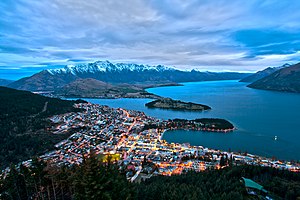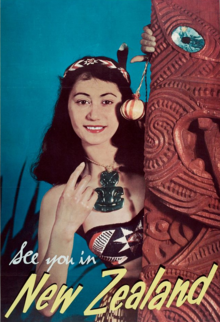
Tourism in New Zealand comprised an important sector of the national economy – tourism directly contributed NZ$16.2 billion of the country's GDP in the year ended March 2019. As of 2016 tourism supported 188,000 full-time-equivalent jobs. The flow-on effects of tourism indirectly contributed a further 4.3% of GDP. Despite the country's geographical isolation, spending by international tourists accounted for 17.1% of New Zealand's export earnings. International and domestic tourism contributed, in total, NZ$34 billion to New Zealand's economy every year as of 2017.

A visitor center or centre, visitor information center or tourist information centre is a physical location that provides information to tourists.

Tourism Malaysia or Malaysia Tourism Promotion Board (MTPB) is an agency under the Ministry of Tourism, Arts and Culture, Malaysia.
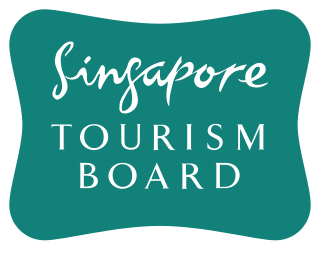
The Singapore Tourism Board (STB) is a statutory board under the Ministry of Trade and Industry of the Government of Singapore, tasked to promote the country's tourism industry.
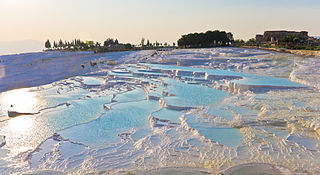
Tourism in Turkey is focused largely on a variety of historical sites, and on seaside resorts along its Aegean and Mediterranean Sea coasts. Turkey has also become a popular destination for culture, spa, and health care. Since 2021, Turkey is the fourth most visited country in the world.

India Brand Equity Foundation (IBEF) is a Trust established by the Department of Commerce, Ministry of Commerce and Industry, Government of India. IBEF's primary objective is to promote and create international awareness of the Made in India label in markets overseas and to facilitate the dissemination of knowledge of Indian products and services. Towards this objective, IBEF works closely with stakeholders across government and industry.

The Korea Tourism Organization is an organization of the Republic of Korea under the Ministry of Culture and Tourism. It is commissioned to promote the country's tourism industry.
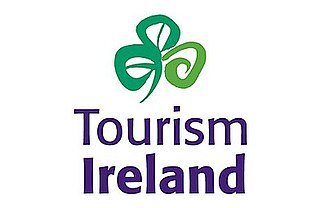
Tourism Ireland is the marketing body responsible for marketing the island of Ireland overseas. Tourism Ireland was established as one of "six areas of co-operation" under the framework of the 1998 Belfast Agreement and became operational in January 2002.

Visit Wales is the Welsh Government's tourism organisation. Its aim is to promote Welsh tourism and assist the tourism industry.
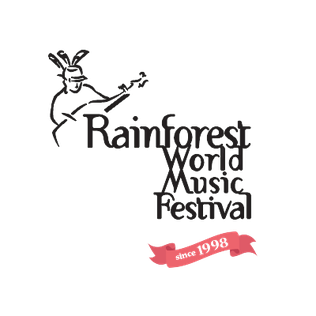
The Rainforest World Music Festival is an annual three-day music festival celebrating the diversity of world music, held in Kuching, Sarawak, Malaysia, with daytime music workshops, cultural displays, craft displays, food stalls, and main-stage evening concerts. The festival has been awarded 25 of the best International Festivals by Songlines for six consecutive years; from 2010 to 2015.

The Pacific Asia Travel Association (PATA) is a membership association working to promote the responsible development of travel and tourism in the Asia Pacific region.
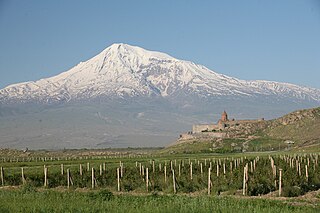
Tourism in Armenia has been a key sector to the Armenian economy since the 1990s when tourist numbers exceeded half a million people visiting the country every year. The Armenian Ministry of Economy reports that most international tourists come from Russia, EU states, the United States and Iran. Though relatively small in size, Armenia has four UNESCO world heritage sites.
Visa requirements for Canadian citizens are administrative entry restrictions by the authorities of other states placed on citizens of Canada.

Visa requirements for South Korean citizens are administrative entry restrictions by the authorities of other states placed on citizens of South Korea.

Visa requirements for Filipino citizens are administrative entry restrictions imposed on citizens of the Philippines by the authorities of other territories.

Visa requirements for Singapore citizens are administrative entry restrictions by the authorities of other states which are imposed on citizens of Singapore.
Visa requirements for New Zealand citizens are administrative entry restrictions by the authorities of other states placed on citizens of New Zealand.

Hotel ratings are often used to classify hotels according to their quality. From the initial purpose of informing travellers on basic facilities that can be expected, the objectives of hotel rating have expanded into a focus on the hotel experience as a whole. Today the terms 'grading', 'rating', and 'classification' are used to generally refer to the same concept, that is to categorize hotels.
The Seychelles Tourism Board (STB), a public/private sector body headed by CEO Mrs. Sherin Francis, with Mrs. Kathleen Mason as Chairperson, oversees most aspects of Seychelles' tourism industry whose Minister is Mr. Didier Dogley. The Seychelles Tourism Board is responsible for the promotion and marketing of the Seychelles islands as the preferred tourist destination.
1. Bangladesh Tourism Board, a member of the UNWTO and PATA, is the National Tourism organization of Bangladesh.. In 2010 Hon'ble Prime Minister of the People's Republic of Bangladesh Sheikh Hasina established it through the enactment of the Tourism Board Act, 2010.
